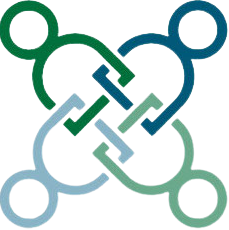Let’s Get Writing in 2024: Tips for Making and Sticking to Writing Goals
The new year comes with many hopes and plans for 2024, whether they be personal or professional. For those in research and academia, the new year is often associated with writing goals. But goals can be a double-edged sword. Writing goals can provide motivation and structure but they can also lead to feelings of self-doubt and being overwhelmed. There is so much to do and to write about that one can suffer from imposter syndrome and analysis paralysis and not know where to begin.
Here are some tips for making and sticking to writing goals while minimizing stress and self-doubt:
Be realistic. Lofty writing goals, though laudable, can sometimes be difficult to translate into reality. Many in the service-learning and community engagement (SLCE) field work outside of their academic program, leaving even less time for writing. Everyone needs both short-term and long-term writing goals. Start with small and simple steps. For example, begin with a goal to finish a specific section instead of completing an entire chapter. Also keep track of ideas and resources for future research projects. The writing and research continues!
Build community and share your goals. The support and power that come from community are invaluable. As scholars who study community engagement, it is important that we build communities of our own. Community members can help provide outside perspectives and ideas. They can also remind you that you are not alone. The IARSLCE Graduate Student Network (GradSN) offers wonderful opportunities to build this community for graduate students (at all stages) and young professionals. We hold monthly virtual writing retreats. All are welcome to join no matter what stage you are at in the writing process.
Take advantage of SLCE specific journals, conferences and other resources. There are many journals (e.g. IJRSLCE, MJCSL) and organizations (e.g. Campus Compact, LEAD California, and NYLC) specifically dedicated to SLCE work and research. Get involved and stay updated with these resources. In addition, there are ways to get further engaged with SLCE groups through programs like the Dissertation Dish and the IARSLCE Practitioner-Scholar Program.
Be flexible and forgiving. One lesson I learned and am continuing to learn since the pandemic is to be resilient. We do not know what the future holds, and we cannot always control it. Focus on what you can control and take time to periodically reassess your goals and if they fit your present circumstances. It is okay if you cannot complete your original writing goals or if your goals change. Set aside time to regularly reflect on your writing goals. Another graduate student recalls starting a tradition of “Friday Finish” where she would sit down with her mentor to discuss her progress for the week and how this should impact her future goals (Lee, 2020). Even if you are not able to assess your goals weekly, the habit of regularly checking in can be useful. In your reflection, consider the following questions:
Are my goals still the right fit?
How should I adjust them?
Do I have any new goals?
What have I already accomplished?
Are there milestones I reached that were not encompassed by my original goals?
Create (and stick to) a writing schedule. Writing is one of those things that often gets delayed for other seemingly more urgent tasks; however, setting aside consistent time to regularly work on writing projects can help move them forward. Share this schedule with others, especially your colleagues, family, and classmates. By doing this they can help you stick to your schedule and respect your writing time.
Remember and continue to remind yourself of your “why”. It is easy to get caught up in the logistics and deadlines and forget why we started this work in the first place. We got involved in this work because we wanted to make a difference in some way. Have a picture, quote, or some other reminder to help ground your work and remind yourself of your “why”.
If you are interested in joining the GradSN, contact the GradSN Chair Atsuko Kuronuma at gradsn@iarslce.org.
Happy writing!
Colette Ankenman is an EdD student in Educational Leadership at Saint Mary’s College of California. She is also the Director of Programs at Junior State of America (JSA). She can be reached at ca21@stmarys-ca.edu.

